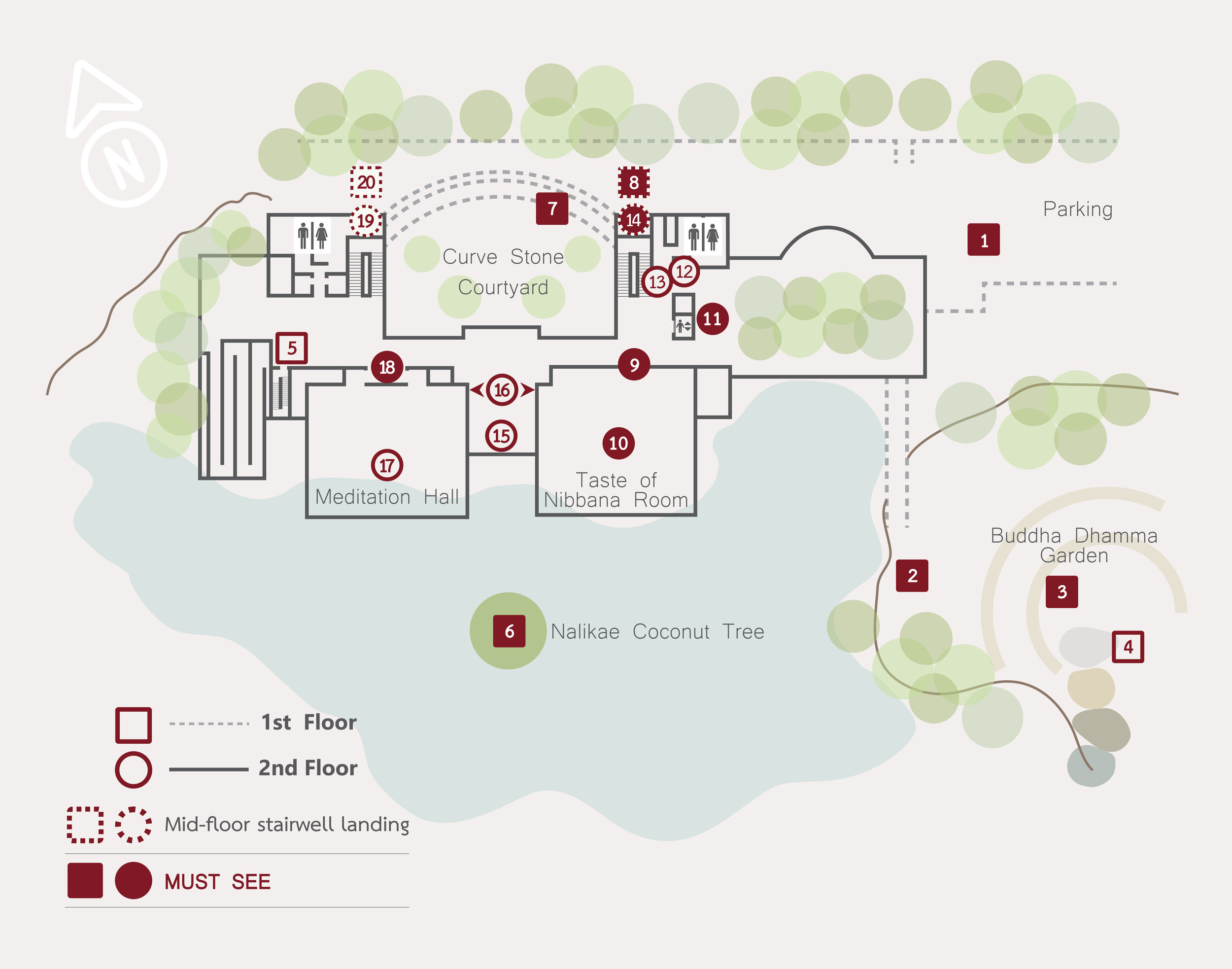Kuti
Seclusion, revelations and resolutions
At 26, six years after becoming a monk, Buddhadasa Bhikkhu abandoned formal Pali and scriptural studies in Bangkok, noting it was neither how nor where he could find purity. He realized instead that he must follow the path described by the Buddha himself, away from the lavish temples, rituals, superstitions, and the culture propping them up.
So in May 1932, at a deserted monastery near his home town in Southern Thailand, which had long ago been reclaimed by nature, he began two years of solitary contemplation and study of the Buddha’s discourses. He renamed the monastery Suan Mokkh (Garden of Liberation). He began documenting what was revealed to him through his practice. Other monks eventually joined him.
“The slogan of Suan Mokkh is ‘eat from a cat’s plate, bathe in a stream, sleep in a pen, and listen to the mosquitoes sing.’ This is a practical standard for eliminating the problems of material life and supports mental development because it follows that natural principle which says, ‘simple living, high thinking.’”
This kuti (monk residence), one that he had built for himself, reinforces this practice. it is bedroom, living room, study and meditation hall. It is simplicity in its limited use of material resources and in its limited barriers to the natural world—the Dhamma. The spartan design eventually won his kuti the nickname Kuti Leao Moo (Pigpen Kuti).
“Sleeping with a wooden pillow is something the Buddha himself recommended as a way to train ourselves in not oversleeping. Mara has no chance to take over the person who doesn’t indulge in sleep, who is strong and active both physically and mentally. In those days, both wanderers and warriors slept with wooden pillows, especially, the Licchavi noblemen.”
Along with pen, paper and a typewriter, such a kuti was all Buddhadasa Bhikkhu required to formulate and articulate his revolutionary reinterpretation of Thai Buddhism. And as guidance to the movement unfolding around his ideas he developed three resolutions, which in later years he called wishes.
“There are 3 wishes in my life: 1) Help Buddhists or followers of any religion attain the deepest meanings of their religion. 2) Develop good understanding among religions. 3) Usher fellow human beings out of the influence of materialism. And I have constantly worked towards the perfection of these 3 wishes. If people in each religion fail to attain the heart of their religion, there would be no way an inter-religious understanding could be fostered. Thus, we must all try to help each other attain the heart of our religion together. Ultimately, they will be above the influence of materialism together.”
These resolutions/wishes became the mission of Suan Mokkh and so too that of BIA.




